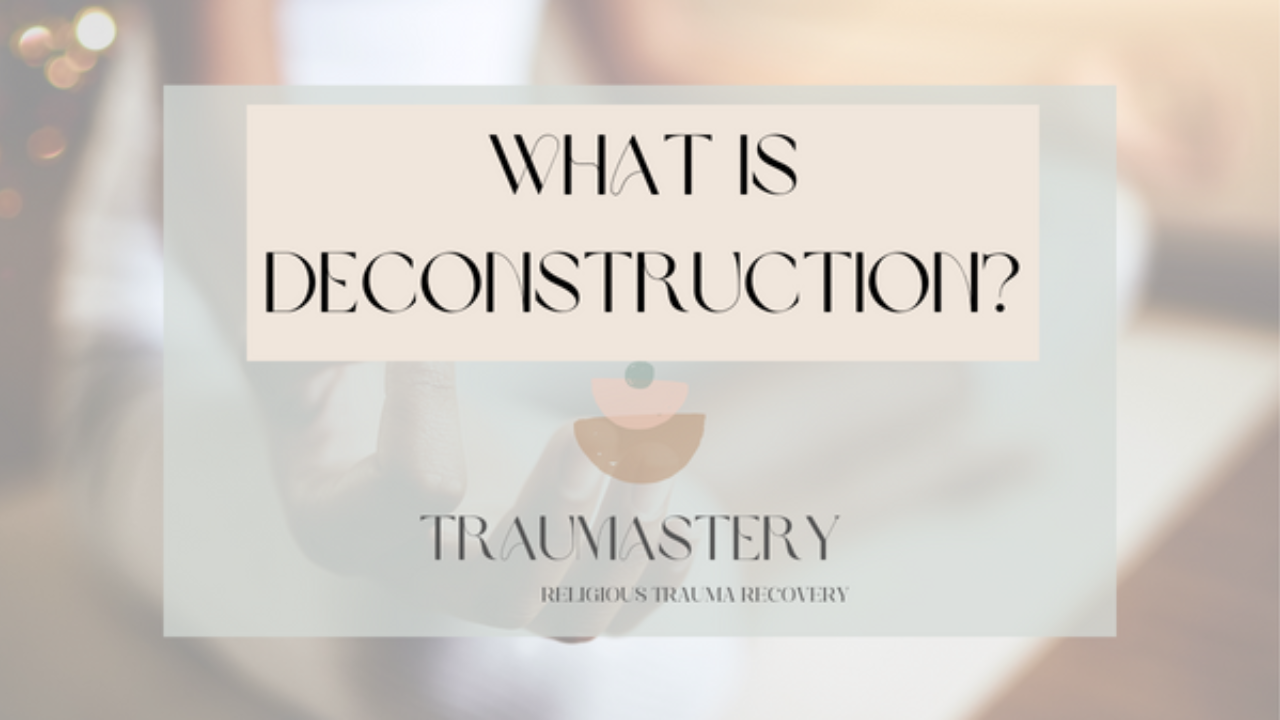What is Deconstruction?

Let’s talk about deconstruction and what the heck that word actually means. This word is probably very familiar to you if you’ve been in the religious trauma world. We like to think of deconstruction as the slow “unbuilding” brick-by-brick of how you previously knew the world. If you have spent any length of time in a religious community or a cult, it has provided you with a foundation of how to understand yourself, the world around you, and others. It takes time to slowly disassemble our belief system brick by brick.
Dr. Quincee Gideon identifies these as the 5 stages of deconstruction (generally speaking— but all are different experiences):
✷ Asking questions: Nearly all deconstructing begins with asking questions about your community and belief system. You might find that the rules you are learning are incongruent with the values your faith professes.
✷ Doubts add up: If your questions start adding up without clear answers, your faith might start to feel really shaky. On the other hand, you might be receiving answers that don’t match the values of your religious group, leaving you doubtful of leadership. Despite how others respond to your doubts, having doubts just means that you are human.
✷ Careful dismantling: This is a slow and careful process. It can be uncomfortable or even painful to start digesting the idea that you might need to change your mind about things that were previously pretty set in stone for you. This is a significant adjustment, and we’ve previously written about how destabilizing this process can be. Careful dismantling is the deconstruction stage where you might start to experience trauma symptoms (learn more here). It is normal to experience trauma symptoms in this stage, but it can be uncomfortable.
✷ Open exploration: When you dismantle rules, rigidity, and inability to ask questions, you create space in your life. In this stage, you will find that there’s much more space to explore and tolerate the ambiguities in your current spirituality or belief system.
✷ Commitment: After exploration of your past and present belief systems, you typically feel ready for a new commitment— a new way of seeing the world and your spirituality. This means that your anxiety about what you believed and believe is typically at a minimum. In this stage, you are able to feel more grounded in your stance, understanding or defining your experience as traumatic.
These stages and their experience of them will be different for everyone. Maybe you had doubts for several years, or maybe you left your community shortly after questioning your leader’s values. Perhaps you had a strong support network in your deconstruction process and didn’t experience many trauma symptoms. Be kind to yourself and take the time that you need to work through each stage.
We have therapists that specialize in helping people leave traumatic communities and recover from their impact. If you are looking for ways to get both education and support, we’ve created our no-pressure community led by a clinical psychologist that specializes in religious trauma and cult recovery. You can read more about and register for A Year of Non-Magical Thinking here.
If you are looking for a first step in the midst of your religious trauma recovery, we suggest our religious trauma workbook, De-Glorifying Suffering. This is a 10-week step-by-step guide in managing your religious trauma response and understanding your experience from the perspective of religious trauma and cult recovery.


